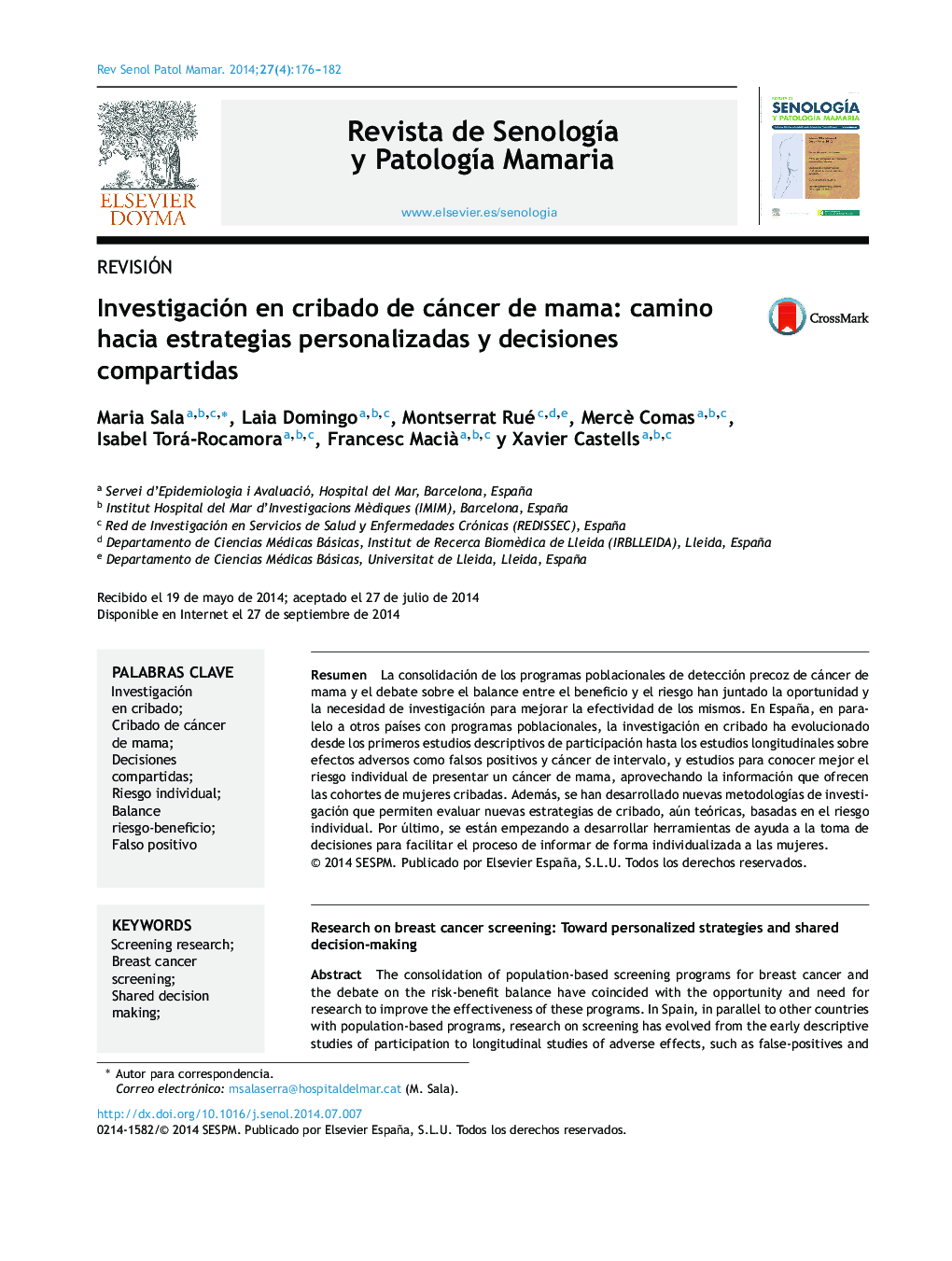| Article ID | Journal | Published Year | Pages | File Type |
|---|---|---|---|---|
| 3973748 | Revista de Senología y Patología Mamaria | 2014 | 7 Pages |
Abstract
The consolidation of population-based screening programs for breast cancer and the debate on the risk-benefit balance have coincided with the opportunity and need for research to improve the effectiveness of these programs. In Spain, in parallel to other countries with population-based programs, research on screening has evolved from the early descriptive studies of participation to longitudinal studies of adverse effects, such as false-positives and interval cancers, and studies designed to better understand the individual risk of breast cancer. These studies have been able to take advantage of the information offered by the cohort of screened women. New research methodologies have been developed to allow the evaluation of new theoretical screening strategies based on individual risk. Finally, decision-making tools are being designed to facilitate the process of informing women individually, contributing to shared decision-making.
Related Topics
Health Sciences
Medicine and Dentistry
Obstetrics, Gynecology and Women's Health
Authors
Maria Sala, Laia Domingo, Montserrat Rué, Mercè Comas, Isabel Torá-Rocamora, Francesc Macià , Xavier Castells,
